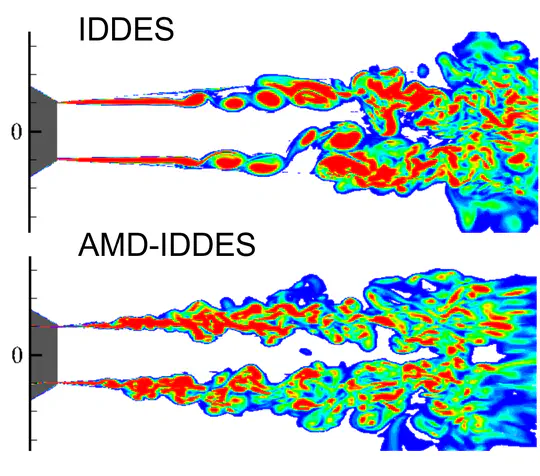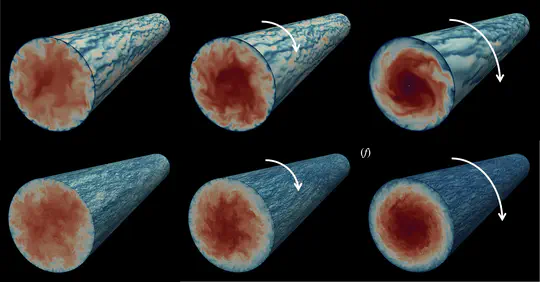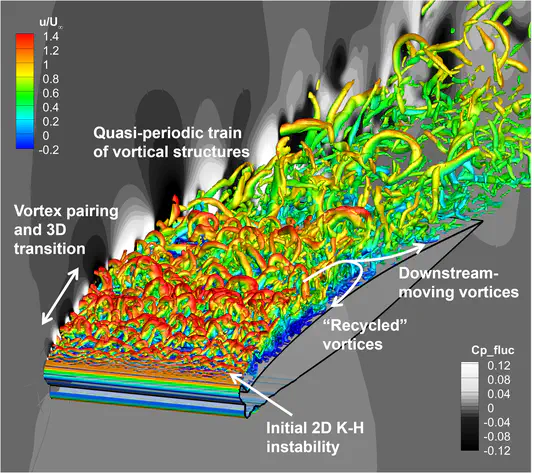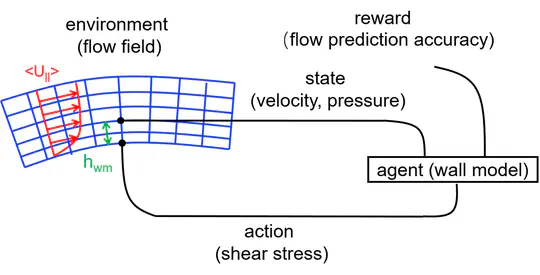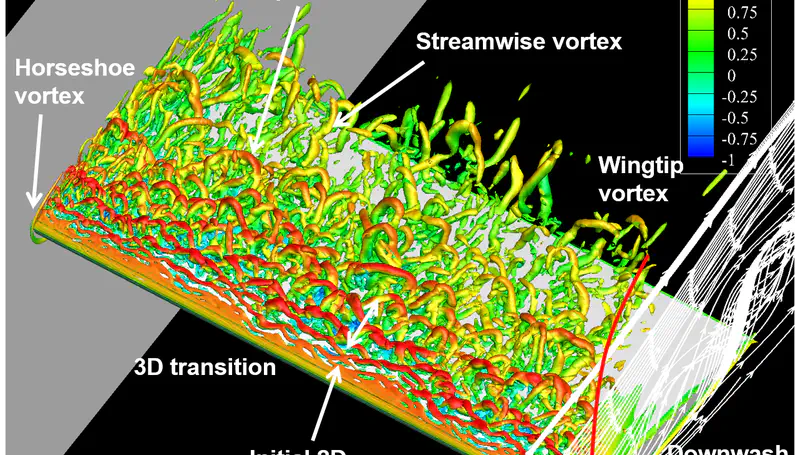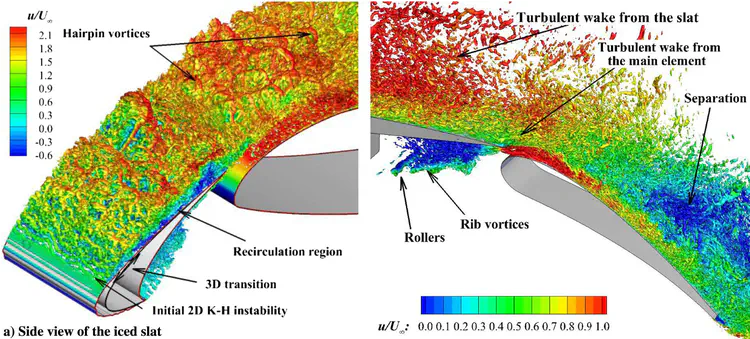Biography
Maochao Xiao is a PhD student in Aeronautics and Space Engineering at Sapienza University of Rome. He shows interest in exploiting machine learning for turbulence modeling in large eddy simulation (LES) and Reynolds-averaged Navier-Stokes (RANS), while leveraging graphics processing units (GPUs) for computational efficiency. His recent activities focus on the development of robust wall models for large-eddy simulation based on reinforcement learning (RL).
Interests
- Computational Fluid Dynamics
- Machine Learning
- GPU Acceleration
Education
PhD in Aeronautics and Space Engineering, 2025
Sapienza University of Rome
MEng in Aeronautical and Astronautical Science and Technology, 2019
Tsinghua University
B.Eng. in Flight Vehicle Propulsion Engineering, 2016
Northwestern Polytechnical University
Projects
*
A shear-layer-adapted subgrid length scale is applied to improved delayed detached eddy simulation to alleviate the “grey area” issue, and an anisotropic-minimum-dissipation subgrid length scale is further proposed to enhance the computational accuracy on anisotropic meshes.
Direct numerical simulations are performed to investigate the drag reduction and near-wall coherent structures in rotating pipe flow up to Re𝜏 ≈ 3000
Scale-resolving simulations are conducted to unveil the separated flow around iced wings and iced high-lift configurations.
Codes
CFL3D-enhanced
CFL3D-enhanced features hybrid RANS/LES simulation, leveraging an anisotropic minimum-dissipation IDDES model (AMD-IDDES). Inviscid flux scheme is a blended central/upwind scheme. Enhanced I/O capabilities include flow field averaging, animating and sampling. The modified version is available on request. Please check the author’s GitHub for more open-source codes.
CaNS
CaNS (Canonical Navier-Stokes) is a code for massively-parallel numerical simulations of fluid flows. It aims at solving any fluid flow of an incompressible, Newtonian fluid that can benefit from a FFT-based solver for the second-order finite-difference Poisson equation in a 3D Cartesian grid.
STREAmS-2
STREAmS (Supersonic TuRbulEnt Accelerated navier–stokes Solver) performs Direct Numerical Simulations of compressible turbulent flows in Cartesian geometry solving the unsteady, fully compressible Navier-Stokes equations for a perfect gas.
